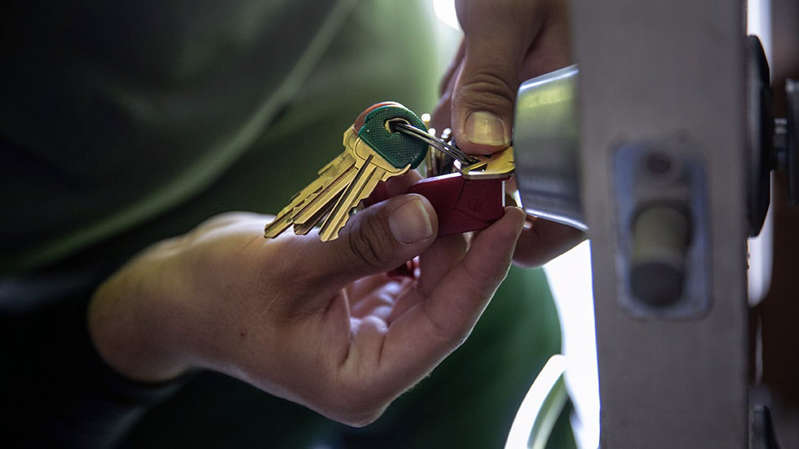James Edwards, Ph.D.,
Property owners have become all too accustomed to attacks on their fundamental property rights. Fortunately, late last week the U.S. Supreme Court took a major step in upholding these fundamental rights by striking down the Centers for Disease Control and Prevention’s (CDC) latest eviction moratorium extension.© Getty Images Supreme Court ruling is a win for property rights
Congress initially passed a temporary ban on evictions as part of its pandemic response back in March 2020. But last September, unelected CDC officials exceeded their legal authority with a series of extensions of the moratorium. Even after numerous lawsuits made clear that the CDC lacks the authority to impose such a moratorium, the administration with blatant disregard to the Constitution and individual property rights, extended it again earlier this month. The administration had previously said it didn’t have the legal authority to do so.
The administration seems to have willfully disregarded the law in a continued attack on the Constitution and the rights of hard-working property owners. The court wasted little time in weighing in late last week and concluding that the CDC lacks the authority to impose such a moratorium without congressional action. The court also noted the harm to property owners and the violation of their rights.
“The moratorium has put the applicants, along with millions of landlords across the country, at risk of irreparable harm by depriving them of rent payments with no guarantee of eventual recovery. Despite the CDC’s determination that landlords should bear a significant financial cost of the pandemic, many landlords have modest means,” the ruling stated, noting “preventing them from evicting tenants who breach their leases intrudes on one of the most fundamental elements of property ownership – the right to exclude.”
Mom-and-pop landlords have been stuck in CDC limbo for months, all while footing the bill. They must still make their mortgage payments on time with or without payment from their tenants. Some have been fortunate enough to make arrangements with lenders to postpone or extend loan payments. But for how long?
If the Supreme Court had not stepped in, the CDC could extend moratoria indefinitely. Many small-scale landlords have had to scramble to find second jobs to cover the shortfall. But in many cases the extra income won’t be even close to enough.
On top of loan payments, landlords are saddled with property taxes, utilities and other obligations. There is also the cost and responsibility of property maintenance. Keeping the property in good repair is not just in the owner’s interest, but it’s also a legal obligation – even if the tenant hasn’t paid rent in months. Finally, landlords are obliged to put food on their families’ tables – and the CDC’s policy has stood in the way of that.
For far too many mom-and-pop operators, the denial of property rights is leading to financial ruin. Very often, a tenant is in arrears to the tune of thousands of dollars. Collectively, American landlords are owed an estimated $20 billion in unpaid rent. Small property owners are quickly approaching the point where they have few options. Many are already in default of their primary mortgages and are teetering on the edge of bankruptcy.
Other property owners have already liquidated their rental property to recoup some of their losses. That has often meant selling their property to large companies and mega-investors which turn around and rent the properties at significantly higher rates. Thus, the CDC can chalk up yet another unintended consequence, rising rental costs and lower inventories of affordable property.
Clearly, we should have compassion for tenants who have suffered economically during the pandemic and have trouble paying rent. However, we should also be concerned for about property owners, who certainly do not relish the idea of launching eviction proceedings in court. They cannot be expected to bear the entire burden of this pandemic, as the court pointed out.
Read More From The PatriotAmerican
During this pandemic, Congress has appropriated nearly $50 billion for rental assistance and yet barely 10 percent of that money has reached tenants to help them. The Biden administration, as well as state and local officials who are concerned about the well-being of tenants, should focus on getting this aid where it belongs – to the tenants – not focus on denying the livelihoods and rights of property owners.
The court’s decision should send an important message to bureaucrats and politicians: No matter how well-intentioned, we must enact policies that adhere to the rule of law and that protect the most fundamental property rights of our citizens.

